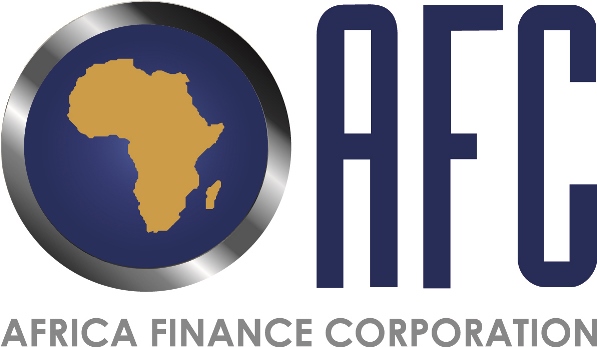The Africa Finance Corporation (AFC), Africa’s leading infrastructure solutions provider, has announced its most impactful year to date, with unprecedented expansion of projects and investments spanning energy, transportation, mining, food, textiles and climate resilience.
Underpinning robust growth in earnings and total assets, AFC successfully navigating the global geopolitical, inflationary and debt distress challenges of 2023 to implement critical infrastructure projects across multiple sectors that are central to Africa’s structural transformation and sustainable development.
The landmark initiatives include Djibouti’s first wind farm, with AFC as lead developer advancing plans to become the first African country wholly reliant on renewable sources for energy, and the Lobito Corridor rail project, with AFC again as lead developer working alongside the US, European Union and governments of Angola, DRC and Zambia to mobilise industry and connect the Atlantic and Indian oceans. Advancing industrialisation, value creation and livelihoods, AFC with its partner Arise IIP expanded the Arise Special Economic Zones to 10 West and Central African countries, focusing on essential sectors including food security, textiles and minerals.
“At the heart of AFC’s mission is our commitment to deliver impactful solutions for Africa, and this guides each and every investment we undertake,” said Samaila Zubairu, AFC’s President and CEO. “AFC’s impact is evident in our solutions-oriented approach and unwavering commitment to realising transformative projects across Africa—infrastructure projects like the Red Sea Power Wind Farm in Djibouti, the Arise IIP industrial zones and the Lobito transport corridor that are reshaping the landscape, fostering sustainable development for local communities, and altering the economic trajectory of countries.”
Created through powerful international collaborations, AFC projects undertaken in 2023 also include a joint initiative with Xcalibur Multiphysics to advance the mapping and responsible utilisation of Africa’s natural mineral resources, enabling greater mineral beneficiation, diversified economies, and clean energy transition. In DRC, the Corporation has committed to helping overhaul Kinshasa’s mass transit system to enhance mobility and reduce pollution through a partnership with Trans Connexion Congo.
A historic commitment of US$253 million from the Green Climate Fund to the AFC Capital Partners’ Infrastructure Climate Resilient Fund (ICRF) marked a significant step toward developing sustainable, climate-resilient infrastructure in Africa.
Each initiative blends meaningful development impact and environmental sustainability with strong risk-adjusted returns, leveraging AFC’s unique experience of de-risking project development to crowd in capital and accelerate completion.
“In a year marked by global economic and geopolitical complexities, AFC has stood as a beacon of resilience, delivering value to all stakeholders while creating jobs and prosperity through structural transformation across Africa,” said Mr. Zubairu. “Our robust financial results reflect AFC’s unwavering commitment to unlock practical solutions for projects that enhance local value capture and spur industrialisation.”
AFC’s annual profit rose 15.3% to US$329.7 million, while operating income increased 24.2% to US$497.5 million, and total assets expanded 17.3% to US$12.34 billion, surpassing the Corporation’s 5-year strategy target by US$2.3 billion.
Further significant financial highlights include:
• Return on average equity at 11.0% (2022: 12.1%)
• Net interest income up 31.3% to US$430.5 million (2022: US$327.9 million)
• Total comprehensive income up 14.6% to US$327.0 million (2022: US$285.3 million)
• Capital adequacy ratio increased to 34.5% (2022: 34.3%)
AFC’s high-profile exit from the Atlantic Terminal Port in Takoradi, Ghana, through a sale to major global ports operator Yilport exemplified strategic divestment.
According to the report distributed by the APO Group on behalf of Africa Finance Corporation (AFC), the Corporation expanded its presence with three new member states—Ethiopia, Burundi, São Tomé and Príncipe—bringing the total to 43. Six new sovereign shareholders were also onboarded, including Turk Eximbank becoming the first non-African shareholder. Equity investments in addition from the governments of Côte d’Ivoire, Benin and Botswana, Cameroon’s Caisse Nationale de Prévoyance Sociale (CNPS), and SBM Capital Market Securities Ltd. in Mauritius helped increase AFC’s total equity by 26.7% to US$3.42 billion.
Debt market transactions further broadened AFC’s investor base with significant global financial institutions participating in a record US$625 million syndicated loan, supported by a 62% oversubscription. The Corporation also received a US$350 million line of credit from the African Development Bank and a €50 million facility from Cassa Depositi e Prestiti, showcasing the Corporation’s ability to attract regional and international institutions.
“As AFC charts its course to further elevate our impact across the continent, we remain deeply appreciative of the unwavering support of our stakeholders and the dedication of our team, whose passion drives our mission forward,” said Mr. Zubairu. “With a refreshed strategic agenda emphasizing balanced portfolio growth, innovative financing, and enhanced operational capacity, AFC is well-positioned to shape a robust future for African infrastructure and development.”
GIK/APA


